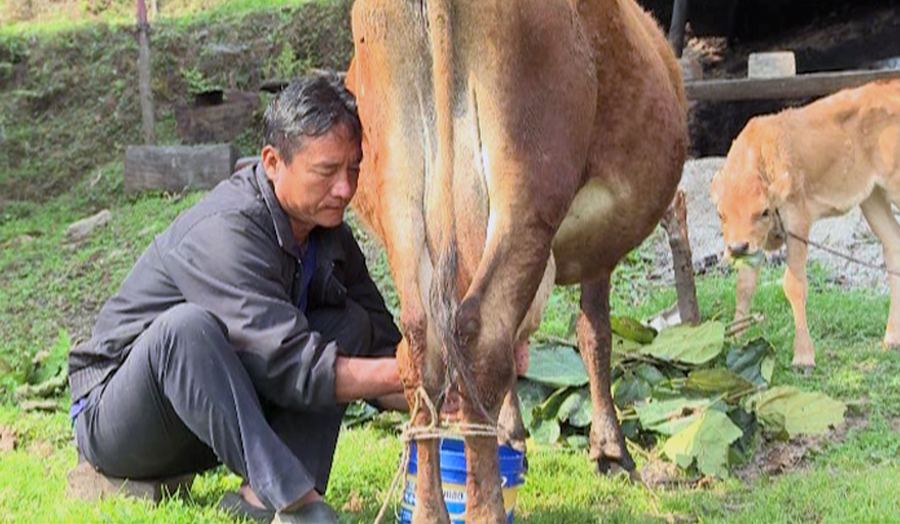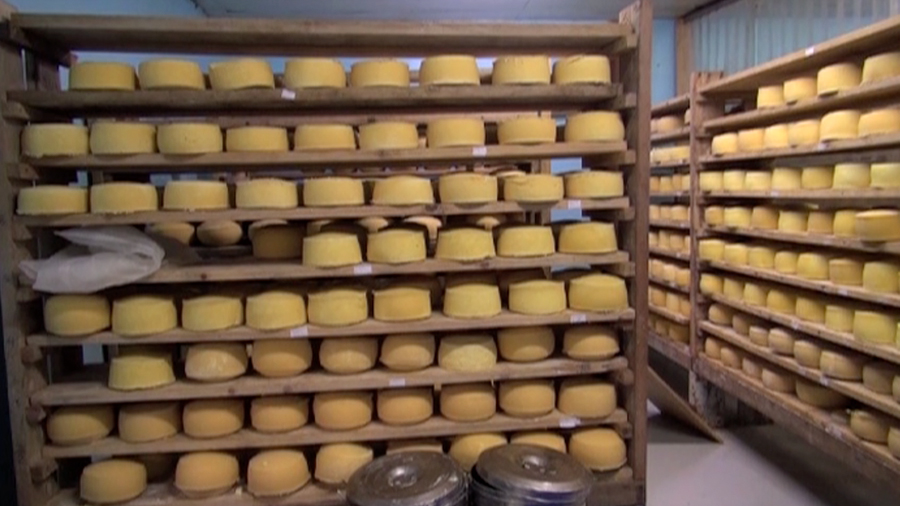
In the remote village of Goenpa at Ngatshang Gewog in Monggar, dairy farmers have found a reliable market for their milk at Koufuku International’s dairy processing plant at Chenary in Trashigang. However, while the farmers benefit from the convenience of the dairy processing plant, they say they would benefit more if the current price is revised given the rising cost of feeds.
 The farmers in Goenpa village rely on Jersey cows as their primary source of income. They are members of the Yadi Gonor Detshen, a dairy farmers’ group of about 80 members. By selling their milk to the dairy company, they no longer have to worry about finding a market for their dairy products.
The farmers in Goenpa village rely on Jersey cows as their primary source of income. They are members of the Yadi Gonor Detshen, a dairy farmers’ group of about 80 members. By selling their milk to the dairy company, they no longer have to worry about finding a market for their dairy products.
Dorji, who is the chairman of Yadi Gonor Detshen is one of the many beneficiaries of the dairy processing plant. The 56-year-old milks his cow and takes it to the milk collection shelter where other members also wait for the collection van to arrive.
After the milk is collected, it is taken to the Yadi milk collection centre and chilled in a machine to prevent spoilage before reaching the processing plant.
With about 300 litres of milk produced per month, Dorji earns more than Nu 10,000 which he uses to buy household items.
‘‘When we sell our milk to the company, it benefits us all as it reduces workload. If we have to make cheese and butter, we will have to do more work. Sometimes we face difficulty in finding a market for these products,’’ said Dorji.
Like Dorji, other members share similar benefits of selling their milk to the dairy processing plant.
‘‘I think it is better to take milk to the processing plant at Chenary. If we keep milk with us, we will not be able to earn any cash. It is benefiting us a lot,’’ said Zangmo, a member of Yadi Gonor Detshen.
‘‘I am depending on cattle only. When we sell 10 to 11 litres of milk per day, I am able to earn Nu 14 to 15,000 a month. About 50 per cent of the farmers are depending on cattle. If we don’t have cows, we won’t have anything to sustain our livelihoods. Even in our field, we need to use cow dung as manure,’’ said Kinzang Choden, another member.
The group sells about 275 litres of milk every day. But they say it would be more helpful if the Koufuku company increases the price of the milk considering the rising cost of feeds.
‘‘We have been requesting officials to increase the price of milk. But they are neither increasing nor decreasing the price. These days even a bottle of water costs Nu 25 and when they pay us Nu 37 per litre of milk, it is a loss for us. Moreover, a bag of cattle feed now costs about Nu 2,000. The other members have been requesting me to talk with the officials to increase the price of the milk,” said Dorji.
Meanwhile, according to the officiating chief executive officer of Koufuku International Limited, they increase the price of milk by one ngultrum every year irrespective of whether the company runs at a loss or gains profit in accordance with the agreement.
He added that the company can increase the price of milk if the farmers increase the volume of production or bear the transportation charges till the chilling centre of the processing unit.
Today, the company collects the milk from their doorsteps, spending Nu 350,000 on transportation costs.
The dairy processing plant not only benefits the dairy group in Ngatsang Gewog but also over 140 households in Balam and Chaskhar Gewogs.
Today, Koufuku International works with 19 milk cooperatives and groups, covering nearly 900 households in Trashigang, Monggar and Samdrup Jongkhar.
The company produces yoghurt, butter and cheese from about 1,900 to 2,500 litres of milk delivered daily.
Karma Wangdi, Monggar
Edited by Sonam Pem








